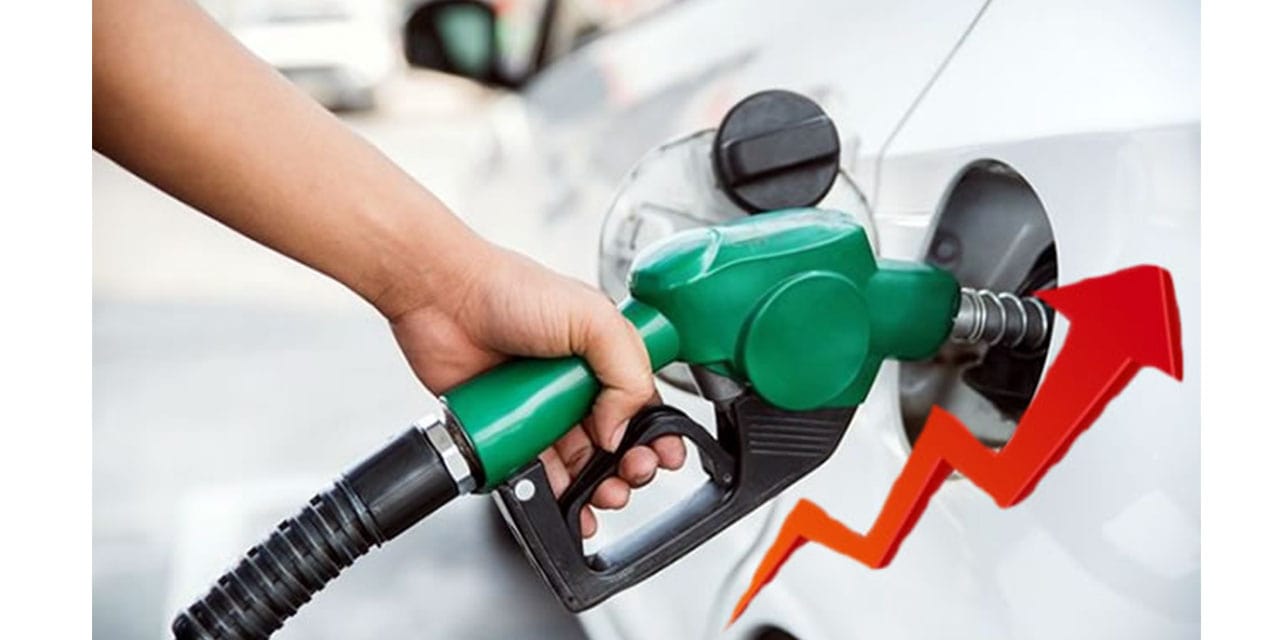Martin Endjala
Petrol and diesel prices have jumped for a third month in a row effective from 6th of April 2022.
The astronomical hikes will see petrol trading at N$1.95 cent and diesel at N$2.95 cent per liter respectively at the pumps. This translates into the petrol price at Walvis Bay increasing to N$19.10 cent per liter diesel retailing at N$20.23 cent.
This current high prices have never been experienced in Namibia’s recent past even during the most difficult of global or local economic downturns.
The Deputy Minister of Mines and Energy Kornelia Shilunga in her announcement today said that the sharp increase in petroleum products is attributed to geopolitical tensions between Ukraine and Russia which have intensified last month, following Russia’s ‘’special operation’’ in Ukraine and has driven market uncertainties regarding the availability of Russia’s crude.
Russia is the second largest crude oil producer in the world after Saudi Arabia.
Sounding optimistically, the deputy minister said the National Energy Fund (NEF) will be covering all the under-recoveries recorded at the end of March 2022 on behalf of the fuel consumers, which is approximately N$390 million.
Under recoveries for petrol translate in dollar terms to N$2,20 cents per liter and N$3.59 cents per diesel liter. The shortfall of 35 cents for petrol and 64 cents for diesel is covered by the National Energy Fund.
The continuity in the widening of mismatch between global oil supply and oil demand, has brought an about a scarcity of the commodity which results in prices increases.
The expectation is that fuel prices may stabilise following the announcement by US President Joe Biden that will release huge amount of fuel from his strategic reserves to fill the shortage gap. The ministry is currently in consultative dialogues with the Ministry of Finance and various state institutions that derive revenue from levies and taxes charge on petroleum product prices.
This is to ‘’explore amicable solutions on reducing some of the levies and taxes to ease the burden of fuel consumers,” said the deputy minister.
According to Shilunga these consultations are currently at an advanced level and it is expected to be finalized in April, she affirmed.
The appreciation of the Namibian dollar, during the month of March was not significant enough to offset the sharp increase in fuel prices during the period of under review.
The MME conducts its fuel prices reviews on a monthly basis to determine whether there is a need to adjust the prices.
“We do so because petrol and diesel are controlled products. These products are imported into the country via licensed wholesales companies at a price that is set at the international level,’’ Shilunga said.
The government, she continued does not have control over the international spot price for fuel.
Saima Neke, the Director of National Energy Fund said that the fund will continue to assist in its obligations alluding that in 2020 the fund was paid 1.2 billion from the levies, of which 72 million went to transportation logistics of fuel across the country to rural areas, which is costly.
The Executive Director of the MME Simeon Negumbo impressed upon motorist the tough times the economy is entering in terms of prices, warning that it requires tightening of belts.
When asked what the ministry will do if the high fuel prices persist, Negumbo said the government may relook the levy structure to mitigate the situation.
The Petroleum Economist Abednego Ekandjo emphasized that there is no guarantee that fuel prices will remain stable if Namibia has its own fuel storage facility. “Even if national oil fuel facilities are filled up, the prices can still change in the next day or month, which will then expose the government risks,” he state.
Ekandjo proposes that a 100 percent mandate for oil imports should be given to one company and not a multitude of oil firms as is the case currently.
Building of processing facilities could also be considered to save on the shipping costs since currently Namibia imports it shipment at the price set in Singapore.
Deputy minister Shilunga advised Namibians that great financial sacrifices will be have to be made on both the individual and the collective levels, affirming that it is the only way that the country will be able to overcome the current difficulties.




